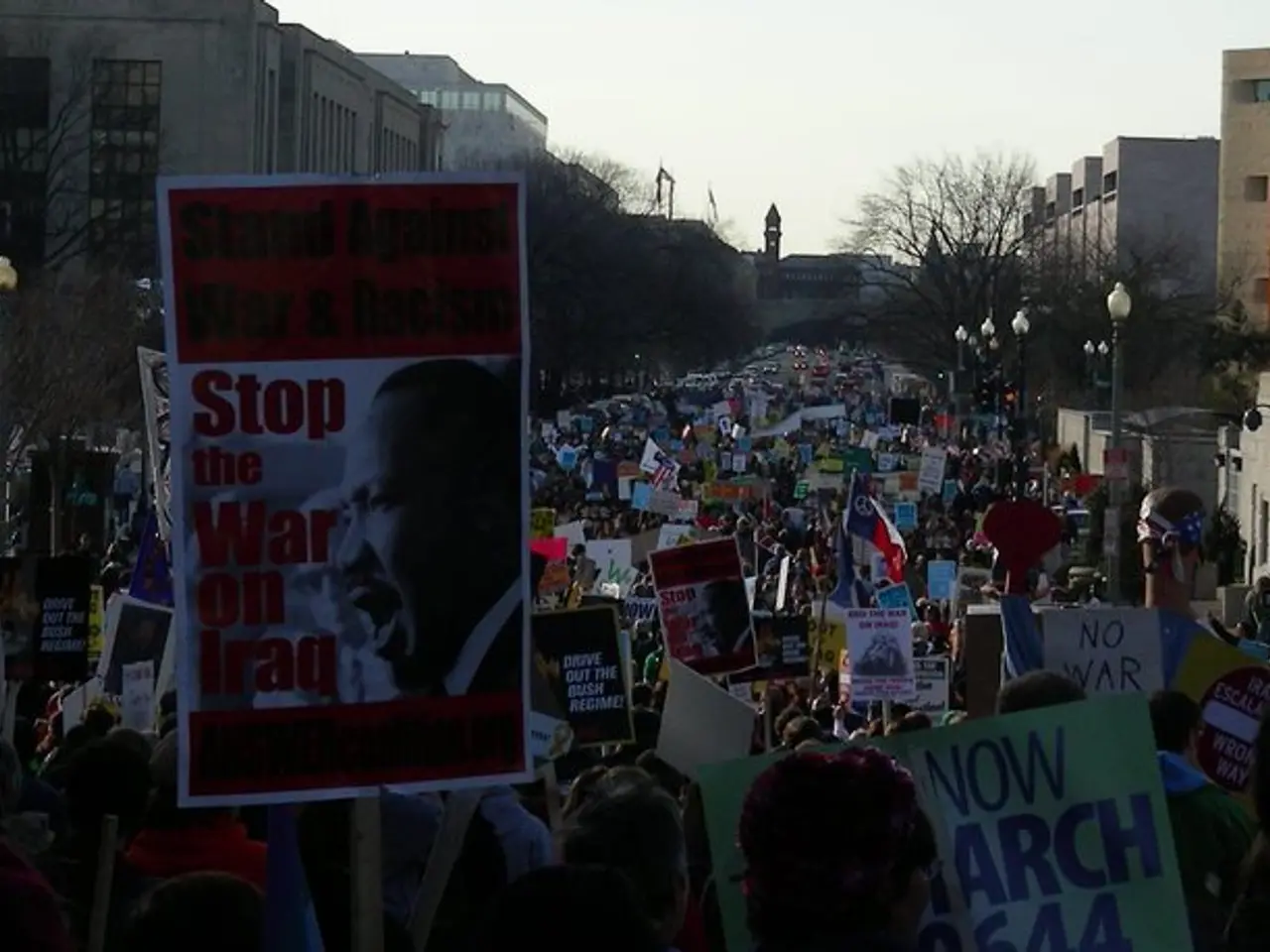Israel aims for Gaza City takeover: Examining potential repercussions
The German government has taken the first concrete measures against Israel, halting the approval of military exports that could be used in the ongoing Gaza war [1]. This decision comes as the Israeli military continues to expand its operation in the Gaza Strip, with the aim of capturing Gaza City and gaining full control over the entire region.
The impact on the Gaza population is severe. Reports suggest that up to 800,000 civilians may be forcibly displaced from Gaza City by 7 October, many of whom have already been displaced previously [2]. This mass displacement could lead to starvation, death, and destruction in an already dire humanitarian situation. The operation threatens to make Gaza uninhabitable and deepen the humanitarian crisis.
Regarding hostages, the situation remains critical. International voices, including the UN Security Council, stress that all hostages held by Hamas must be released unconditionally [2][4]. Continued military escalation endangers the hostages' lives as well as civilians in Gaza [2][4]. The suffering of hostages and their families has been emphasized as a priority for urgent resolution.
The international community's response has been sharply critical. Countries including France, the UK, Denmark, Greece, Slovenia, and Turkey have condemned Israel's decision to widen military operations, describing it as risking violations of humanitarian law and international law, and leading to further instability and deadlock in the peace process [1][3][4]. The UN Security Council and top officials emphasize that there is no military solution to the conflict and urge working toward a two-state solution [2][4]. Calls have been made for ceasefires, humanitarian access, and diplomatic efforts to resolve the conflict.
Politically, the expansion risks destabilizing the entire region and undermines future prospects for Palestinian statehood and peace. The planned military control and displacement are seen as further entrenching occupation and occupation-related violations, complicating future governance involving the Palestinian Authority [3][4]. France and other actors reaffirm that lasting peace requires respect for Palestinian aspirations and a two-state framework [3].
In summary:
- The humanitarian situation in the Gaza Strip is already critical, with a threat of famine, and destruction, rubble, and misery being common sights.
- Israel's security cabinet has decided to expand its military operation in the Gaza Strip, with the aim of capturing the city of Gaza.
- The impact on the Gaza population is severe, with massive forced displacement planned and a worsening humanitarian crisis.
- Regarding hostages, the situation remains critical, with calls for unconditional release and concerns over the safety of hostages and civilians.
- The international community's response has been sharply critical, with condemnations of Israel's military expansion and calls for ceasefire, humanitarian aid, and a two-state solution.
- Politically, the expansion risks destabilizing the entire region and undermining peace prospects, with potential violations of international law.
The German government's decision to halt military exports potentially used in war-and-conflicts, such as the ongoing Gaza war, reflects a concern in the politics sphere for the escalating violence and its potential impact on general-news, especially the humanitarian crisis in Gaza. The international community, including UN Security Council members, has proposed a two-state solution as the only viable alternative to the conflict, in the face of Israel's military expansion that threatens to destabilize the entire region and violate international law.






